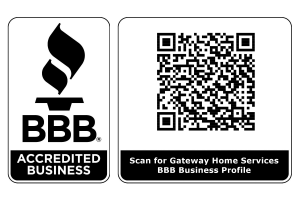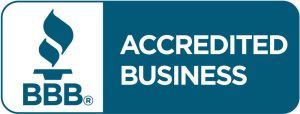
Gateway Home Services
Fully Licensed & Insured home repair, replacement and installation services. 30+ Years Experience in Construction and Remodeling.
Over 50 5 Star Reviews on Google!
Gateway Home Services
At Gateway Home Services, we pride ourselves on being the premier full-service provider for residential and commercial repair, replacement, and installation needs in St. Louis, Missouri. Our highly skilled team brings over 30 years of experience to every job, ensuring that each project is handled professionally and professionally.
Gateway Home Services stands out as a Top Tier Service Company, licensed, insured, and dedicated to quality. We understand the importance of your time and convenience, so we schedule services to fit your lifestyle, ensuring that your home improvement, repair, and maintenance needs are met without disrupting your daily life.
From routine AC and furnace maintenance to comprehensive handyman services covering everything from bathroom renovations to kitchen updates, our goal is to make it easy for you to maintain and enhance the value of your property. Our diverse skills and extensive experience mean we’re equipped to tackle any challenge on your to-do list, delivering satisfaction through every process step.
Beyond the home, we also maintain commercial properties’ structural integrity and appearance. Our interior and exterior maintenance services are designed to keep your facility operating smoothly and looking its best, helping you attract and retain customers, clients, and employees.
Choose Gateway Home Services for professional, reliable, and efficient solutions that add value to your home or business.
Home Interior Handyman Services
Gateway Home Services makes it easy for you to maintain and add value to your home. If you are a homeowner with a specific project, we can help. With over 30 years in the home repair business, we concentrate on our customers’ needs and provide exceptional customer service.
Maintaining your home can be challenging, regardless of its size. You may not have the time or tools to accomplish everything on your to-do list. At Gateway Home Services, we have diverse skills and experience and can often accommodate your needs. Our work is performed by an experienced handyman who can walk you through every step of the process. Our goal is your complete satisfaction!
Home Exterior Handyman Services
Maintaining the exterior of your home and its structural integrity also prevents more costly repairs down the road. Also, a well-maintained exterior is essential and not only helps with curb appeal but can also improve your home’s value. Some of our home exterior handyman services include:
Commercial Maintenance Services
Exterior and interior maintenance of your commercial building and property are essential to attracting and retaining your customers, clients, tenants, business partners, and employees. Having a solid maintenance strategy keeps the quality and appearance of your facility intact while also communicating value.
At Gateway Home Services, we know how important an efficient and effective commercial maintenance strategy plan is to your success. We not only have all of the necessary equipment to handle your interior and exterior maintenance needs, but we can deliver it! Our maintenance services incorporate everything and anything you need to keep your facility operating correctly and looking its best. Some of the interior and exterior commercial maintenance services we provide include:
- Snow & Ice Removal
- Commercial Pest Control
- Disinfection & Sanitizing Services
- Lawn Care & Landscaping
- Window Cleaning Services
- Pressure Washing
- Minor Plumbing
- Lighting Repair & Installation
- Emergency Repairs
- Preventative Maintenance
If you are looking for an interior maintenance strategy for your commercial property, we can help. We specialize in providing extensive, multi-site business end-to-end maintenance services. We recognize the importance of having maintenance services in place. A facility that is well maintained not only keeps employees happy and comfortable but will also help your customers and clientele have a fantastic experience.








